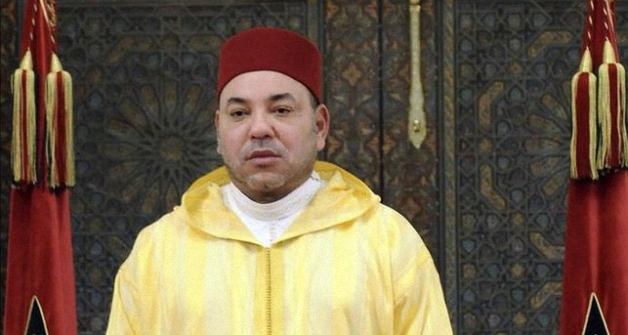بروكينغز الأمريكية: لا إصلاح سياسي في المغرب في ظل تمركز السلط في يد الملك وهي أكبر خدعة

خلصت الباحثة "سارة يركيس"،العاملة بمؤسسة "بروكينغز" الأمريكية، الى أن الدستور المغربي لسنة 2011، لم يأتي باي تغيير حقيقي في البلاد، لان معظم مازال الملك يستحوذ على معظم السلطات، اضافة أن أغلب النصوص القانونية التي جاء بها الدستورلم يتم تنزيلها رغم مرور أربع سنوات على تشكيل حكومة عبد الإله بنكيران، وليس هناك مؤشارات حقيقية على تفعيل هذه القوانين.
وجاء في مقال تحليلي للباحثة العاملة في مركز دراسات الشرق الادني والمستشارة السابقة المكلفة بالتخطيط في وزارة الخارجية الامريكية، والمستشارة الجيوسياسية السابقة بعنوان "هل يمكن أن نترقب إصلاحا سياسيا حقيقيا في الدول المغاربية في الأجل القريب"،أن الواقع السياسي المغربي لا يعكس ما جاءت به دستور 2011، كما حذرت من الانخداع بـ "ديمقراطية الواجهة" التي يروج لها النظام، لأن لا أثر لها في الواقع المغربي.
وشككت الباحثة الامريكية في "الجهوية المتقدمة" التي يزعم النظام تأسيسها، بعد الانتخابات الجماعية والجهوية الأخيرة، حيث ان واقع الأمر،و من خلال العديد من تجارب الإصلاحات في المغرب، لا تنقل أي سلطة حقيقية إلى مجالس الجهات،لأن ولاة الجهات يتم تعيينهم من طرف الملك، حيث يحتفظ هؤلاء بحق "الفيتو" ضد مجالس الجهات، حيث من المفروض نقل السلطة من الحكومة المركزية إلى المجالس الجهوية لتخفيف الأعباء على الحكومة المركزية في اطار اللامركزية والاتمركز.
و أضافت الباحثة "سارة يركيس" ان ما يدعو أكثر للقلق بشكل جدي، هو تشديد الخناق على الصحفيين ورموز المعارضة، بما في ذلك التضييق على أنشطة الجمعيات الحقوقية وترهيب الناشطين بالتهم الجنائية. كما خصصت مقالها أيضا لمقارنة التجربة المغربية بتجارب كل من مصر وتونس، وما يجب على الولايات المتحدة الأمريكية فعله لدعم الإصلاحات السياسية في هذه البلدان.و سيتم نشر الترجمة الكاملة للمقال في وقت لاحق.
http://www.brookings.edu/blogs/markaz/posts/2015/10/22-political-reform-maghreb-yerkes
Can we expect real political reform in the Maghreb any time soon?
Morocco: don’t let the façade fool you
Morocco has made some positive progress towards democratic reform. The 2011 protests brought about a new constitution and an elected parliament with an Islamist head of government, Abdelilah Benkirane. This is significant both because Benkirane’s mainstream Islamist party, the Justice and Development Party (PJD), had been squarely in the opposition prior to 2011, and because the PJD is the only Islamist party that was voted into power after the Arab Spring and that remains there.
Last month Morocco held its first regional and municipal elections under a new decentralization process. The idea on paper is to devolve power from the central government to local governments. This would both alleviate the burden on the central government and provide a more direct link between the people and government, much like I just discussed in the case of Tunisia. But, like much of Morocco’s reform process, in reality the decentralization effort does not shift any real power to the local government, as the provincial governors (Walis), who are appointed by the king, retain ultimate veto power over the regional councils.
I am skeptical of Morocco’s chances of achieving real reform for several reasons. First, the 2011 constitution did not initiate real change. Most of the power remains in hands of the king or the Makhzen (ruling inner circle). Additionally, four years later, many of the organic laws that make up the constitution remain unimplemented, with no clear plans to move forward on implementation. Thus, while the constitution is an impressive document on paper, it is not reflected in the Moroccan political reality.
Even more troubling, over the past year the government of Morocco has started seriously cracking down on journalists and opposition figures, including by forbidding human rights associations to gather and threatening activists with criminal charges. Furthermore, the next steps in Morocco’s reform process have not been articulated. The recent decentralization effort was seen as the big push towards reform. Now that that process is largely complete, we will have to wait and see what, if
anything, the government of Morocco will do to keep the reform process progressing.
مواضيع ومقالات مشابهة














